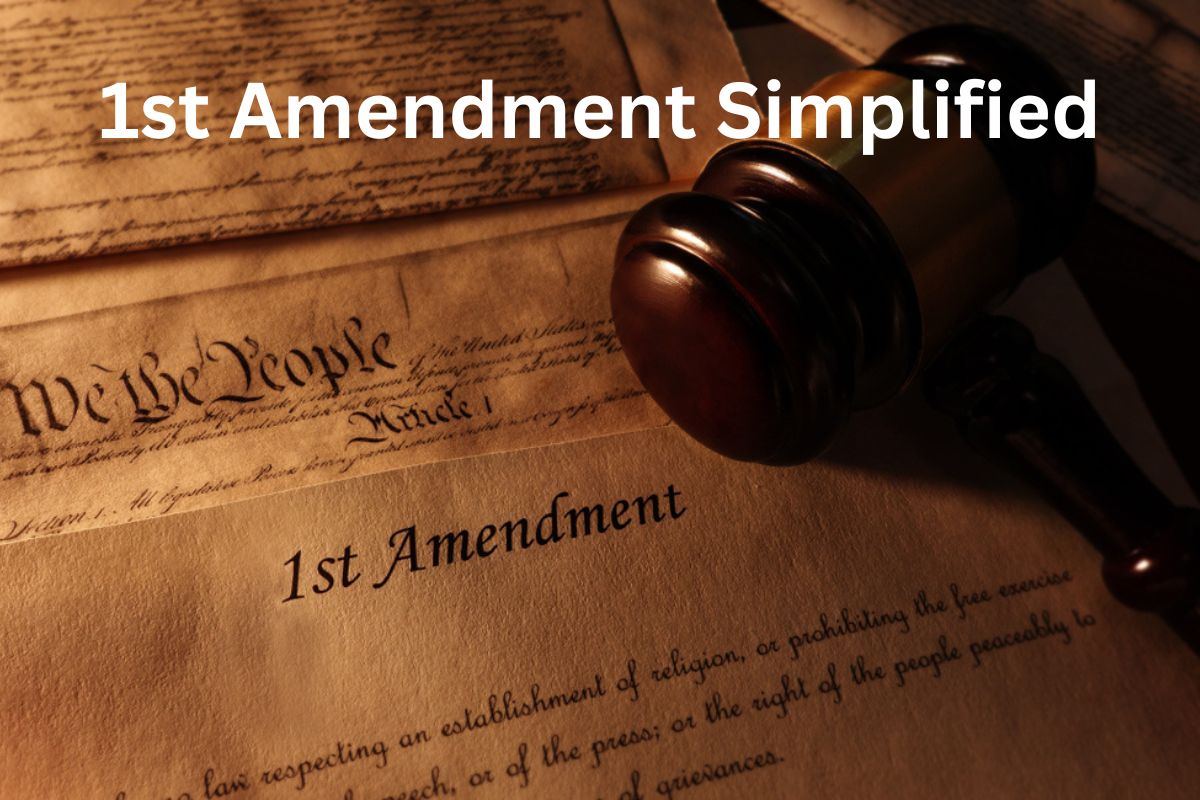The First Amendment is one of the most important parts of the United States Constitution. It guarantees five fundamental freedoms:
- Freedom of religion
- Freedom of speech
- Freedom of the press
- Freedom of assembly
- Freedom to petition the government.
Understanding the First Amendment is crucial because it ensures that these freedoms are protected and upheld for all individuals in the United States.
1st Amendment Simplified:
The first amendment guarantees that individuals are free to express their opinions and ideas, practice their own religion, gather in public spaces, and hold their government accountable.
While there are limitations on these freedoms, such as speech that incites violence or hatred, understanding the First Amendment is crucial for protecting these fundamental rights for all individuals in the United States.
Freedom of Religion
The First Amendment guarantees the right to freedom of religion.
This means that the government cannot establish an official religion or discriminate against any particular religion. Individuals are free to practice their own religion, or no religion at all, without fear of persecution.
Also Read: 2nd Amendment Simplified
Examples of how this right has been applied in the United States include cases involving the display of religious symbols in public places and the right of individuals to refuse medical treatment on religious grounds.
Freedom of Speech:
The First Amendment guarantees the right to freedom of speech. This means that individuals are free to express their opinions and ideas without fear of government retaliation.
However, not all speech is protected. Speech that incites violence or hatred, for example, is not protected. Examples of protected speech include political speech, artistic expression, and the right to protest.
Freedom of the Press:
The First Amendment guarantees the right to freedom of the press. This means that the press is free to report on issues and events without fear of government censorship.
A free press is essential for a democracy because it ensures that the public is informed about what is happening in the government and in society. Examples of a free press in action include investigative journalism and the coverage of political events.
Freedom of Assembly:
The First Amendment guarantees the right to freedom of assembly. This means that individuals are free to gather in public spaces and express their opinions and ideas.
This right is important for protests and rallies, as it allows people to come together and make their voices heard. Examples of how this right has been applied in the United States include protests against police brutality and marches for LGBTQ+ rights.
Freedom to Petition the Government:
The First Amendment guarantees the right to petition the government. This means that individuals have the right to address grievances to their elected officials and ask for changes in government policies.
This right is important because it allows individuals to participate in the democratic process and hold their government accountable. Examples of how this right has been applied in the United States include letters to elected officials, petitions, and protests.
Limitations on the First Amendment
While the First Amendment guarantees these fundamental freedoms, there are limitations. For example, speech that incites violence or hatred is not protected.
Additionally, some types of speech, such as obscenity, are not protected by the First Amendment. These limitations are necessary to ensure that these fundamental freedoms do not cause harm to others.
Conclusion
The First Amendment is an essential part of the United States Constitution. It guarantees five fundamental freedoms: freedom of religion, freedom of speech, freedom of the press, freedom of assembly, and the right to petition the government.
Understanding the First Amendment is crucial because it ensures that these freedoms are protected and upheld for all individuals in the United States.
